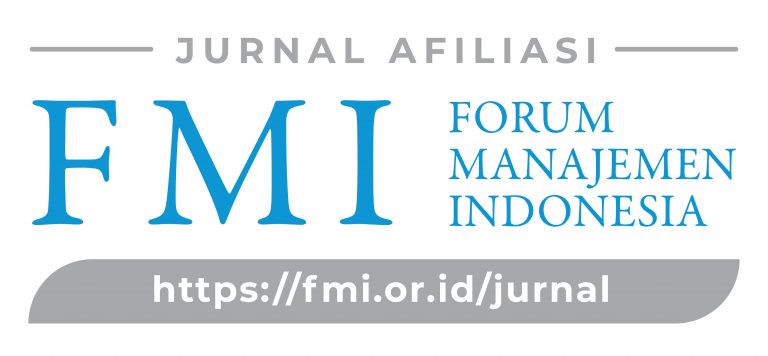Publication Ethic & Plagiarism Policy
Publication Ethics Statement
Ethical standards for publication in GREENOMIKA exist to ensure high-quality scientific publications and public trust in scientific findings, and that people receive credit for their work and ideas.
The GREENOMIKA follows the guidelines contained in the Committee on Publication Ethics (COPE) (https://publicationethics.org/) and abides by its core practices (https://publicationethics.org/core-practices).
Author Ethics
Reporting; the author must provide information about the process and the results of research to the editor in an honest, clear, and comprehensive, and keep the data research properly and safely.
Originality and plagiarism; The author must make sure that the manuscript that has been sent to the editor is the original, written by himself, sourced from ideas and ideas, and not plagiarize the works or ideas of others. Authors are strictly prohibited from transferring the Sources available to anyone else's name.
Repetition of delivery; the author should mention the script sent / sent to the editor is a script that has never been delivered. If there is any redundancy submitting the manuscript to another publication, then the editor will reject the submitted manuscript.
Author status; the author must submit to the editor that the author has the requirements in the field of expertise in accordance with the field of publications, namely librarianship. The author who subscribes the manuscript to the editor is the first author (co-author) if found problems in the process can be completed immediately.
Error of vegetable manuscript; the author should immediately find errors found in the discussion of the manuscript, both the results of reviews and edits. Errors used to refer names, affiliations, information, and other posts that may reduce the meaning and susceptibility of the manuscript. If that happens, the author should immediately announce the repair of the manuscript.
Disclosure of conflict of interest; writers must understand what is happening to others, allowing to translate and help.
Editor Ethics
Publication Decision; editors should make the review process thorough, transparent, objective, fair, and wise. It becomes the basis of the editor in making decisions of folders, rejected or accepted. In this case, the editorial board acts as a complete team of manuscripts.
Publication information; editors should ensure that you can use and use clear, both printed and electronic information.
The distribution of peer-reviewed manuscripts; editors to review reviews and materials for reviews, and evaluation and review process.
Objectivity and neutrality; editors must be objective, neutral, and honest in understanding the manuscript, regardless of gender, business side, ethnicity, religion, race, inter-group, and author's citizenship.
Confidentiality; editors should keep all information well, especially with the author's privacy and distribution of the manuscript.
Disclosure of conflict of interest; editors must understand the ethics of publications to avoid conflicts with others, making the process toward the script work smoothly and safely.
Ethics Review
Objectivity and neutrality; the reviewer must be honest, objective, unbiased, independent, and only in favor of scientific truth. The process of manipulation is done professionally regardless of gender, business side, ethnicity, religion, race, inter-group, and author's citizenship.
Source clarity; the reviewer should ensure that the reference / quotation is appropriate and credible (accountable). If errors or irregularities are found in the use of reference / quotation sources, the reviewer should be promptly submitted to the editor for improvement by the author according to the reviewer's record.
Peer-reviewed effectiveness; reviewers have responded the manuscript submitted by the editors and cooperated with the specified peer-review period (maximum 2 weeks). The time required in the review should immediately report (confirm) to the editorial secretariat.
Disclosure of conflict of interest; observers must understand the ethics of publications to avoid conflicts with others, making the process toward the manuscript run smoothly and safely.
Journal Manager Ethics
Decision-making; the manager of the journal / editorial board should describe the mission and objectives of the organization, especially those relating to the determination of policy and decision of journal publishing without any particular interest.
Freedom; journal managers should give the reviewers and editors the freedom to create a comfortable working atmosphere and respect the privacy of the author.
Warranty and promotion; journal managers must guarantee and protect intellectual property rights (copyright), as well as transparent in managing funds received by third parties. In addition, journal organizers should publish and promote the results of publications to the public by providing assurance of usefulness in the use of the manuscript.
Disclosure of conflict of interest; journal managers must understand the ethics of scientific publications above to avoid any conflict of interest with other parties, so the process of publishing the manuscript runs smoothly and safely.
Plagiarism Policy
Plagiarism involves the "use or close imitation of the language and thoughts of another author and the representation of them as one's own original work." (https://www.turnitin.com)
GREENOMIKA does not encourage any form of plagiarism and duplicate submissions. All articles submitted to the GREENOMIKA will be cross-checked using the Turnitin or Plagiarism Detector software before publishing online.
The GREENOMIKA follows the guidelines contained in the Committee on Publication Ethics (COPE) flowcharts (http://publicationethics.org/resources/flowcharts):
The journal adheres to plagiarism policy does not exceed the tolerance limit of 25%.
If the editor detects the element of plagiarism in the manusscript, the editor will handle it as follows
0 - 20% Plagiarism: The manuscript will be given an ID and the manuscript is sent to the reviewers.
20 - 25% Plagiarism: The manuscript will not be given an ID and the manuscript is sent back to author for content revision.
> 25 % Plagiarism: The manuscript will be rejected without the review. The authors are advised to revise the manuscript and resubmit the manuscript.
Note that self-plagiarism does not apply to publications based on the author's own previously work in a conference proceedings, however the source must be cited by the author(s).
In the case of suspected plagiarism in a published article, then the GREENOMIKA publishes an official retraction of the paper. The mechanism follows the guidelines from the Committee on Publication Ethics (COPE) which can be accessed at (https://publicationethics.org/files/retraction%20guidelines.pdf.)















